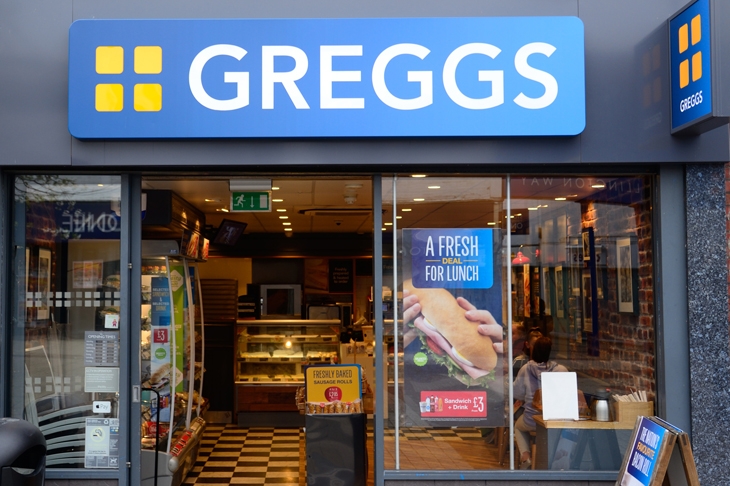The nation certainly needs optimism this week, so what better moment to start building our ‘UK Optimist Fund’ of shares with exciting prospects for the post-Brexit era, for which I invited suggestions last week? I’m grateful to all respondents but was particularly glad to hear from former minister Edwina Currie — whose stock picks show a penchant for high dividend yields — and this column’s very own veteran investor Robin Andrews, whose market eye has stood Spectator readers in such good stead over the years.
Our underlying quest is a serious one. We’re heading into new territory in which businesses will clearly suffer if they previously depended on tariff-free access to European markets. But others will thrive if they have strong prospects within the UK, or unique technologies, or growing non-EU export demand that will be boosted by a cheap pound. So our portfolio needs a base of blue-chips with big footprints at home (though some will also have interests abroad) and a second layer of smaller stocks that are potential world-beaters.
Here are ten for the first category. First, Greggs the baker — because we’ll always need pies, or even vegan sausage rolls. Then Lloyds Banking Group (though the brave prefer Barclays), insurer Direct Line and power utility National Grid, which has a quarter of its customers in the US and only a slight risk of confiscation by a Corbyn regime. Also picked were Tesco and Vodafone, as entrenched giants that won’t go away in a hurry, and Stobart for its robust range of infrastructure assets.
From the construction sector, readers chose Barratts the housebuilder, Breedon the brickmaker and Costain the civil engineer, despite its Crossrail entanglement. Finally — a lesser-known cherry for this layer of the trifle — two of you picked Regional REIT, which owns and rents provincial office space and pays divis of 7 per cent plus. A reassuringly solid first selection for a week of turmoil, I think you’ll agree: next week, let’s go for excitement.
Washing machine king
Here’s a dinner-party game to divert you from discussing the B-word: what are the first news stories you remember from childhood? In my case (born 1955) of course I recall the day of Kennedy’s assassination but I also have dim recollections from 1963 of the death of Labour leader Hugh Gaitskell and the railway axe of Dr Beeching. Deep in memory too is the name of John Bloom, the discount washing machine king who was then at his zenith, and who died last week.
A pioneer of direct selling, Bloom smashed high street prices and made washday easier for thousands of housewives — but was painted by the press as an outrageous spiv, both before and after the crash of his business. I wonder how we might have treated him today: as a bad boy like Sir Philip Green and Mike Ashley or as a disruptor comparable to AO, the Bolton-based online white-goods seller so overhyped by investors that it was briefly worth £1.6 billion on flotation in 2014. I suspect the answer is the former: times change, but the default reaction of the British to business success remains one of deep-seated mistrust.
Not packed yet
I’m in France again, so you’ll expect one of my customary restaurant tips, plus a sketch of what the French are saying about Brexit. The answer to the latter is not much: they regard it as an entirely British-made pagaille, and they’re far more interested in current unrest in Algeria. But Le Monde reported one ‘conséquence concrète’ of the UK’s impending departure: last week’s formal transfer of the European Banking Authority from London to Paris.
This obscure event seems to have come close to fake news, however, since the EBA’s 200 staff, responsible for biennial stress-testing of Europe’s banks, haven’t actually finished packing yet and won’t be meeting in Paris until some time after Brexit day. Why the delay? The decision to move the EBA to Paris was announced in 2017, but the European parliament and Commission took a further year to endorse it, so a lease on office space in the suburb of La Défense could not be signed until last November. If amid last-minute manoeuvres we end up pleading for a negotiating extension, our team can at least highlight the inability of Brussels to meet its own deadlines.
In a dark room
The EBA needs to get its stress-test kit up and running again soon, because this week’s most ominous economic news was a U-turn by the European Central Bank suggesting a concern that banks under its purview are not fit to weather coming storms. In response to evidence of a downturn that pessimists say will swiftly become a recession (2019 eurozone growth forecasts having been slashed from 1.7 per cent to 1.1 per cent), ECB president Mario Draghi dumped his previous policy of tiptoeing towards monetary normality. Instead he announced that he won’t raise euro interest rates this year, and launched a new round of ultra-cheap life-support lending for eurozone banks.
‘In a dark room, you move with tiny steps,’ Draghi told his press conference. With unknown impacts of Brexit on top of other negatives, I fear the room will be darker still by the time he retires at the end of October. Trip hazards aplenty await the shortlist of Frenchmen and Finns who are jockeying to succeed him.
La cuisine ancienne
Meanwhile, on a happier note, I recommend the blanquette de veau at Le Cantou in the hill village of Collanges-La-Rouge (-Corrèze). Beside a log fire in an ancient dining room packed with merry local lunchers, none wearing yellow vests, I listened to a French friend expressing not only his admiration for Emmanuel Macron but also his great affection for the British. It felt, in every respect, like an encounter from an era now gone.







Comments